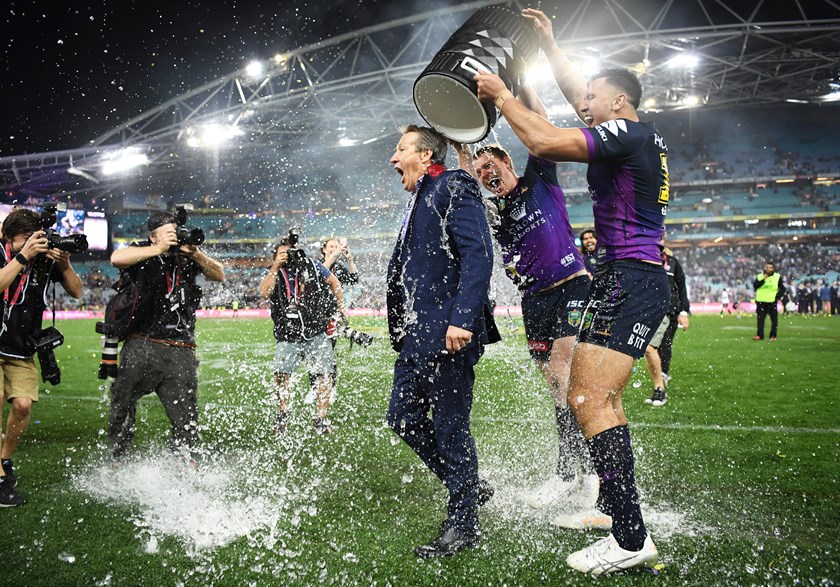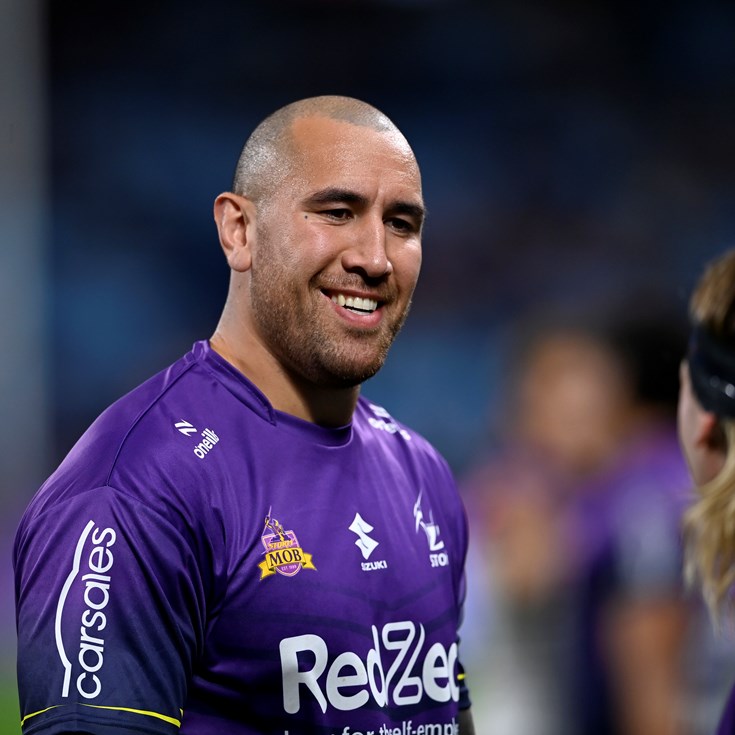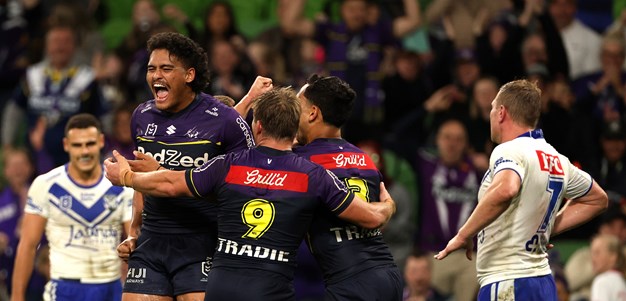Hard work and a focus on the basics – that's Storm coach Craig Bellamy's recipe for success as he eyes his 400th NRL game this Saturday against the Wests Tigers.
Bellamy becomes only the seventh coach to reach the milestone, and has won 68.1% of his games.
The Storm have reached the finals in 14 of his 15 seasons under his mentorship.
Professional coaching is a cut-throat caper, with long-term roles as rare as two drop-goals in the same game.
Ryan Hoffman, who will bring up 250 games for the Storm this weekend and has played 12 of his 15 seasons in the Telstra Premiership in Melbourne, knew he'd have to work hard after signing as an 18-year-old.
Hoffman's father James played with Bellamy at the Raiders in the 1980s and told his son he was in good hands with the new coach in 2003.
"When I signed with Melbourne, the previous coach Mark Murray left, and then Craig came in, I remember Dad saying, 'You're going to have a good coach in Craig because geez you're going to work hard'," he said.
"That's the one thing that's stayed the same – working hard. Good things come to people who work hard, and that's been the main philosophy.
"For me, Craig is the coach that allowed me to become the player I wanted to become. Everyone has their idea in mind when they're a young kid about what type of NRL player they want to be.
"I would have backed myself to become an NRL player, but whether or not I would become the player I wanted to become under anyone else other than Craig – I'm not sure."

Storm fullback Billy Slater said his coach wasn't slowing down, partly due to his focus on continual improvement.
"He's still got the passion and the drive to be the best he can be," Slater said.
"He demands the best out of his players as well. I don't see any signs of slowing up.
"He's certainly evolved as a coach. He doesn't fly off the handle at a drop of the hat anymore. The way he's moved with the modern game is something I didn't expect from him.
"He was very set in his ways for the first five or so years of his coaching career. To be a part of the whole 400 is something I'm very proud of, and admired the way he's been able to change his coaching style and allow other people responsibility within his organisation, to take the team and the club forward."
When asked about whether there was a moment that changed his thinking, Bellamy said he decided to shift the main squad's training focus. It caused a bit of second-guessing, but knew he had to evolve with the game.
"We've changed our training a lot in the last few years, and when we first changed our training, I knew we had to do something different, but I wasn't overly comfortable because most of our training had been quite similar for 10 or 12 years," Bellamy said.
"To change that was a big difference for me.
"I don't just change things on a whim. Innovation's a big word in sport or life now. I think, sometimes, some people look too much into innovation and forget the basics. I've always been really focused about getting our basics right in our game and all sections of our club, and then just making sure we can find some things that will help us do that better and improve, then we'll do that."
The 34-year-old Hoffman will become just the fifth Storm player to play 250 games, joining Cameron Smith (362), Billy Slater (302), Cooper Cronk (323) and Matt Geyer (262).
"I wasn't sure if I would wear the Storm jersey again and I wasn't sure I would get those extra five games to be able to say I'm part of that 250 club," Hoffman said.
"To join them is something that is very humbling. When I left three years ago, I wasn't sure I would get to play for the Storm again, so it's not something that I take for granted."


